"MAKING IT
WORK"
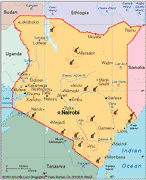
IN KENYA - EPISODE B
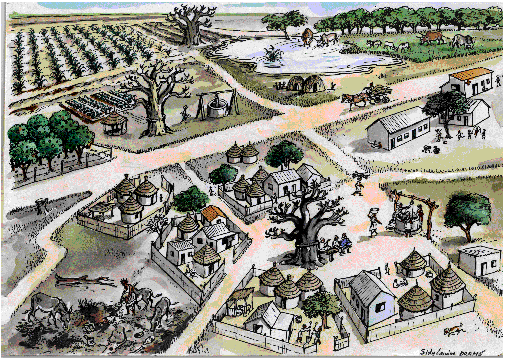
A village somewhere in rural Kenya which you can visit
(click on it)
Everything what matters to rural people in Africa seems
to be there.
THIS IS ONLY A VIRTUAL VILLAGE - IT IS AN ILLUSION!
In many nations, women are the main
food producers - in rural Africa, they do 80 percent of
the work. They are more likely than men to spend income
on food, and as the main meal providers, they are the key
to family nutrition and health. But women and girls are,
ironically, less food secure than men and boys. In many
societies, they eat last and get less. Three-fifths of
the world's women suffer from anemia, and between 20 and
45 percent don't eat the recommended 2,250 calories per
day - even when doing heavy labor.
In many parts of Africa the soil
has become infertile due to overuse and erosion. The use
of pesticides has gone up 10 times since World War II,
but damage to crops by insect pests has doubled. Water
resources have become scarce. Forests have been
diminished.
THIS IS THE REAL PICTURE IN KENYA:
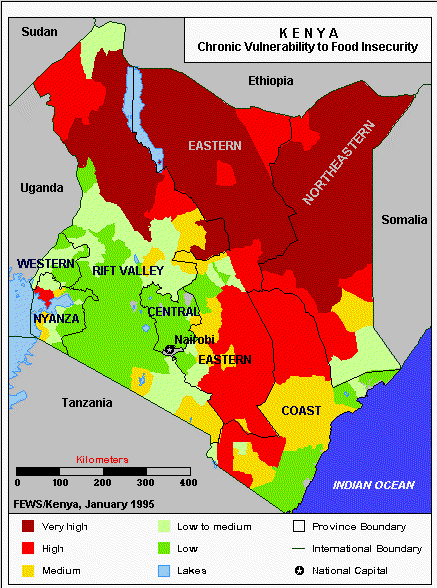
In the Uttoni area of Machakos District in Kenya, several
farmers have rediscovered some of the planting practices
of their parents. Joshua Mukusya and his wife Rhoda have
discovered that the combined activities of contouring the
land, planting grass barriers along the edges which both
stabilize the hillside and produce fodder for the
animals, using a mix of plants with varying root depths
that extract nutrients from different soil levels, and
intercropping legumes and grains has had a positive
impact not only on the land itself, but on their farm
production.

What Joshua Mukusya and his wife Rhoda are involved in is
called:
PERMACULTURE
Permaculture is the conscious design and maintenance of
agriculturally productive ecosystems which have the
diversity, stability and resilience of natural
eco-systems. It is the harmonious integration of
landscape and people supplying their food, energy,
shelter and other material and non-material needs in a
sustainable way. Without sustainable agriculture there is
no possibility of a sustainable social order.

Permaculture is a practical concept applicable from the
balcony to the farm, from the city to the wilderness. It
enables people to establish productive environments
providing for food, energy, shelter, material and
non-material needs, as well as providing the social and
economic infrastructures that support them.

Permaculture means thinking carefully about our
environment, our use of resources and how we supply our
needs. It aims to create systems that will sustain not
only for the present, but for future generations.

Here you can access more information about history and
meaning of Permaculture:

Here you can access more information about history and
meaning of Permaculture:

Characteristics of Permaculture
 Permaculture
is one of the most holistic, integrated systems analysis
and design methodologies found in the world. Permaculture
is one of the most holistic, integrated systems analysis
and design methodologies found in the world.
 Permaculture can be applied to
create productive ecosystems from the human- use
standpoint or to help degraded ecosystems recover health
and wildness. Permaculture can be applied in any
ecosystem, no matter how degraded. Permaculture can be applied to
create productive ecosystems from the human- use
standpoint or to help degraded ecosystems recover health
and wildness. Permaculture can be applied in any
ecosystem, no matter how degraded.
 Permaculture values and validates
traditional knowledge and experience. Permaculture
incorporates sustainable agriculture practices and land
management techniques and strategies from around the
world. Permaculture is a bridge between traditional
cultures and emergent earth-tuned cultures. Permaculture values and validates
traditional knowledge and experience. Permaculture
incorporates sustainable agriculture practices and land
management techniques and strategies from around the
world. Permaculture is a bridge between traditional
cultures and emergent earth-tuned cultures.
 Permaculture promotes organic
agriculture which does not use pesticides to pollute the
environment. Permaculture promotes organic
agriculture which does not use pesticides to pollute the
environment.
 Permaculture aims to maximize
symbiotic and synergistic relationships between site
components. Permaculture aims to maximize
symbiotic and synergistic relationships between site
components.
 Permaculture is urban planning as
well as rural land design. Permaculture is urban planning as
well as rural land design.
 Permaculture design is site
specific, client specific, and culture specific. Permaculture design is site
specific, client specific, and culture specific.
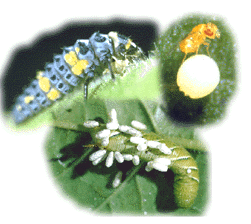 Don't panic, go organic! Don't panic, go organic!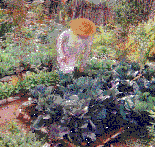
GEORGE MSUMBA OF RBO
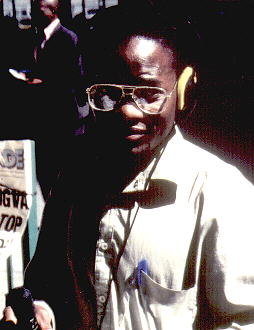
REPORTING FROM KENYA
"A cheap healthy way
to keep pests out of your crops"
14'36" / LISTEN

You can go back to the introduction
page by hitting the button above.

You can go to the next episode by hitting this button,
or you access episodes of your choice by clicking on one
of the thumbnails below.


|